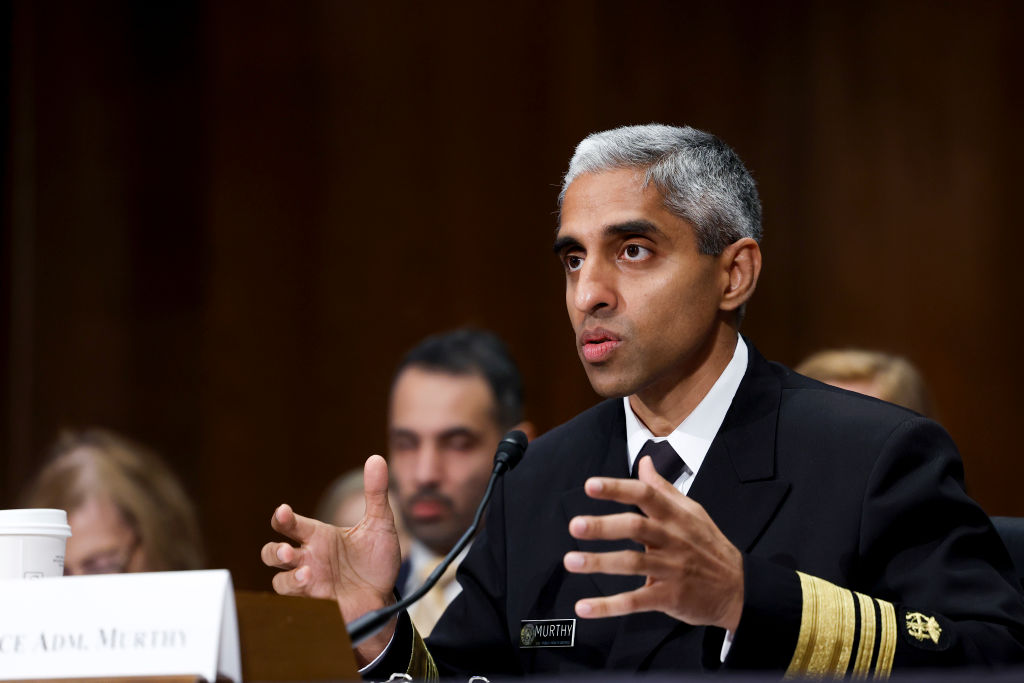“I want to live in the real world, but I can’t afford to.” This is a text message I received from a Generation Z friend a couple of days ago. It’s emblematic of the desperation — and isolation — that many young people are feeling today.
It also underscores the complex nature of Gen Z’s relationship with the internet and the ongoing youth mental health crisis which some social critics believe is downstream of young people’s relationship with technology. But Gen Z’s mental health is an issue that cannot and should not be reduced to superficial explanations about screen time, narcissism, or social media addiction. As my Zoomer friend suggests: social media has something to do with it, but not everything.
Even Surgeon General Vivek Murthy seems to have jumped on the “social media is making teens depressed” bandwagon. In a New York Times op-ed yesterday, Murthy called on Congress to slap warning labels on social media like those on cigarette packs. Move over, Tipper Gore.
The conversation surrounding social media today is eerily reminiscent of previous moral panics. It’s Reefer Madness; it’s the Reagan-era crusade against explicit music; it’s the frenzied condemnation of metal, hip-hop, and violent video games. In each case, the alleged harm caused by these cultural phenomena was misunderstood by overzealous, out-of-touch adults, and the restrictions they enacted proved largely ineffective. “Parental Advisory” stickers, intended to deter young listeners, instead became a badge of coolness, ultimately boosting the sales of labelled albums.
Similarly, despite decades of hand-wringing, the introduction of the ESRB rating system, and the systematic neutering of video game storylines, no credible evidence has emerged to link video game violence to real-world aggression.
It’s not clear that social media causes real-world despair, either. As it turns out, the evidence that “the apps”, “the algorithm”, and “the internet” are causing mental health problems in young people isn’t as overwhelming as some claim.
An ad hoc committee of the National Academies of Sciences, Engineering, and Medicine found that the current research does not support the conclusion that social media causes changes in adolescent health at the population level. The effects are likely a constantly shifting mix of risks and benefits that affect people differently. Some surveys show that kids report more positive experiences with social media than negative ones.
The idea that there is a mental health crisis among teens and young adults isn’t unfounded. But by flattening the conversation and reducing it to an issue solely caused by social media, we risk obfuscating other factors.
Dr Craig Sewall, a Clinical Data Scientist, suggests that changes in diagnostic criteria and screening practices can drastically shift prevalence rates of mental health conditions absent any “real” change in occurrence. Thus, this uptick in anxiety and depression diagnoses might reflect increased awareness and shifting diagnostic thresholds. Other environmental actors may also be at play — such as, in the case of my friend, economic precarity.
Dr Sewall makes another critical point about treating social media as a bogeyman, particularly with respect to policy. Social media as a category remains a slippery, ever-evolving concept. It’s ambiguous as to what even constitutes social media.
To contextualise just how unclear these boundaries are, consider the following. Is UnHerd, with its active comments section, “social media”? Would these warnings apply to Slack? School-run discussion boards? Pornhub? Do we “know it when we see it”?
This line of thinking raises other concerns, too. However well-intentioned, we should always be vigilant about discourse that may invite overreach cloaked in the guise of “protecting the vulnerable”. The bipartisan push to gut Section 230, for example, imperils online free speech. In one sense, this conversation is about “protecting kids”. But that’s not always where these discussions stop, nor is that where the impact of potential policies stop.
While social media poses real risks, including to young people’s mental health, today’s youth deserve better than warning labels on Snapchat. The kids may not not alright, but the Surgeon General’s warnings won’t save them.











Join the discussion
Join like minded readers that support our journalism by becoming a paid subscriber
To join the discussion in the comments, become a paid subscriber.
Join like minded readers that support our journalism, read unlimited articles and enjoy other subscriber-only benefits.
Subscribe